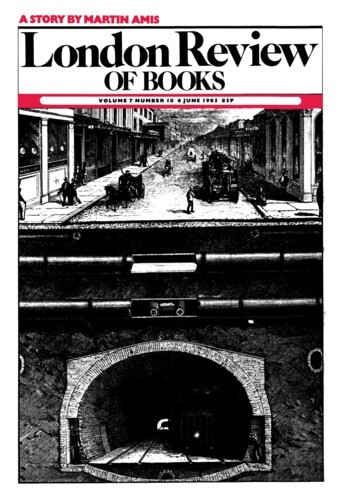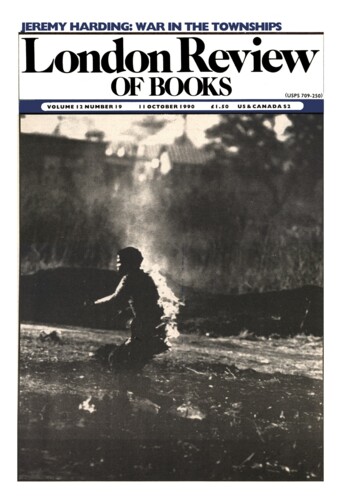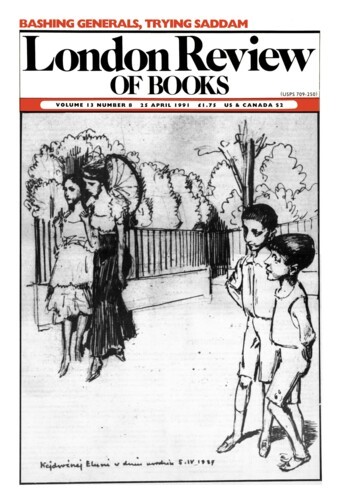Hilary Gaskin
Hilary Gaskin is the author of Eyewitnesses at Nuremberg, which will be reviewed here by Basil Davidson.
The Miners’ Strike
6 June 1985
The Miners’ Strike
6 June 1985
Distaste for Leavis
11 October 1990
Diary: From Nuremberg to the Gulf
Hilary Gaskin, 25 April 1991
The time was 2.30 p.m. on Friday 22 March, the place the top floor of the Washington Hotel, Washington DC. Lined up on the platform in the glare of the television lights were nine elderly men, all into their seventies or beyond. Their names were Walter Brudno, Smith Brookhart, Nick Doman, Benjamin Ferencz, Whitney Harris, Charles Horsky, Henry King, Daniel Margolies and Walter Rockler, and they had all been prosecuting lawyers at the Nuremberg Trial and Subsequent Proceedings in 1945-9. Their audience was just as extraordinary: over a hundred men and women who had been lawyers, interpreters, translators, research analysts, secretaries, journalists and photographers at those trials, and who had come from all over the world to attend the 45th anniversary reunion of the International Military Tribunal. A gathering like this was never going to occur again, and the younger generation present trod softly in the presence of people who had cross-examined the men who for our century have been the definitive ‘war criminals’.
Pieces about Hilary Gaskin in the LRB
Bad Habits
Basil Davidson, 27 June 1991
The notion that war can be carried on without crime is as novel, I suppose, as the companion notion that the crime should afterwards be punished by legal process: the first idea has encouraged...
Read anywhere with the London Review of Books app, available now from the App Store for Apple devices, Google Play for Android devices and Amazon for your Kindle Fire.
Sign up to our newsletter
For highlights from the latest issue, our archive and the blog, as well as news, events and exclusive promotions.



